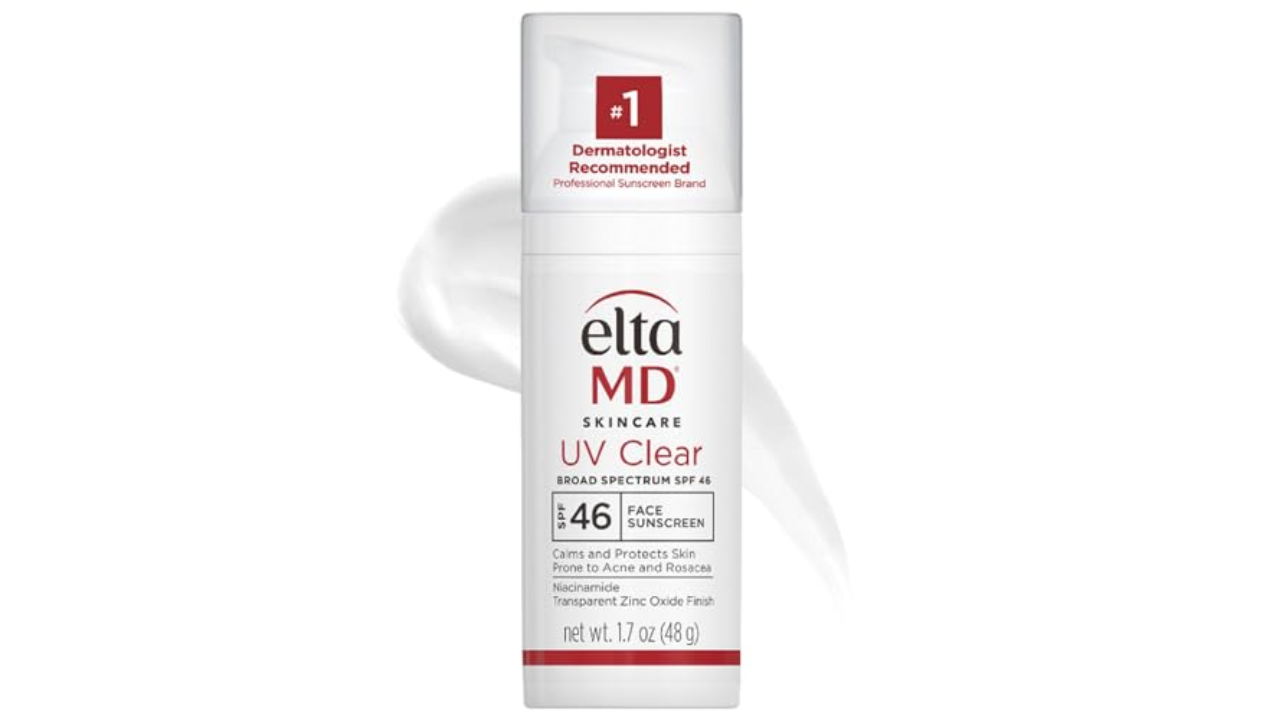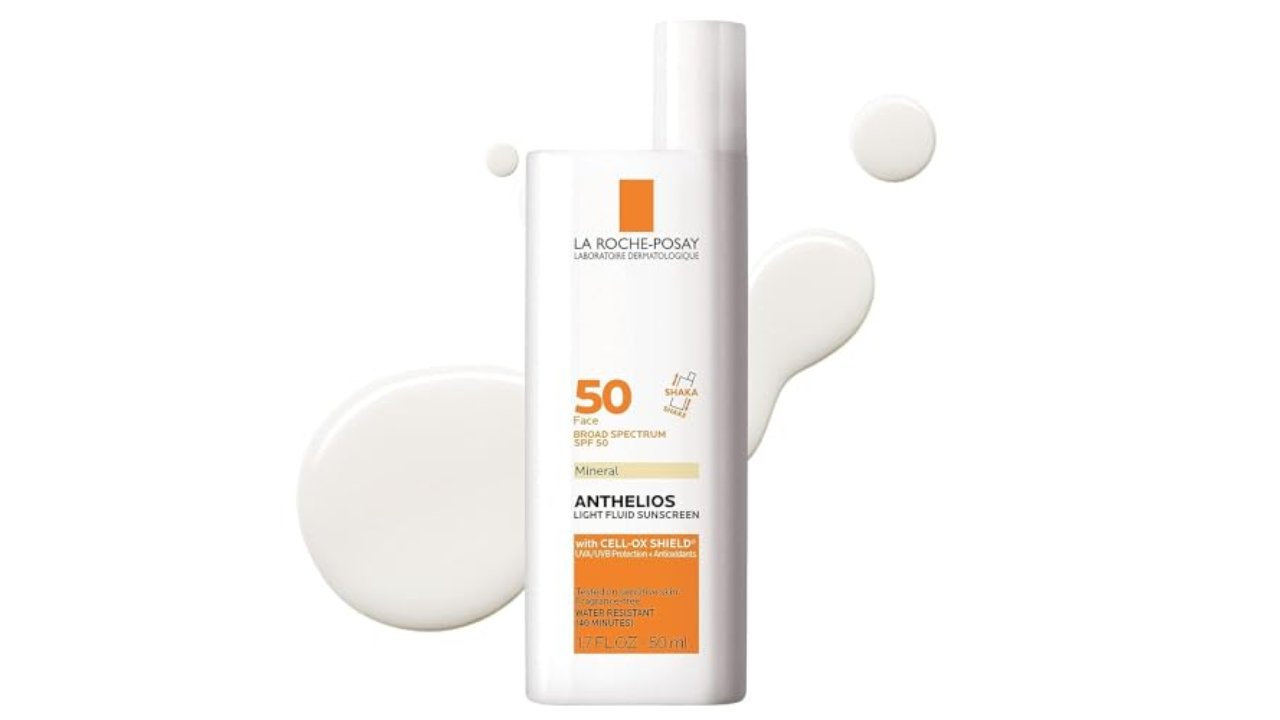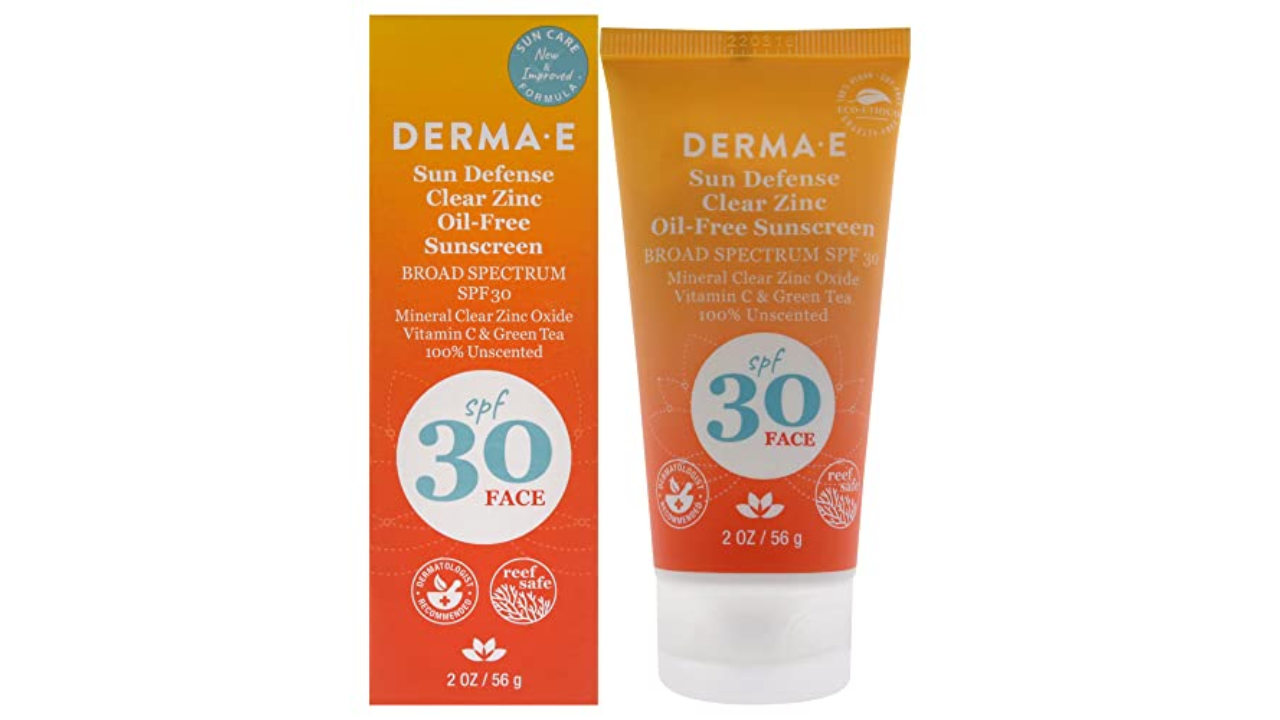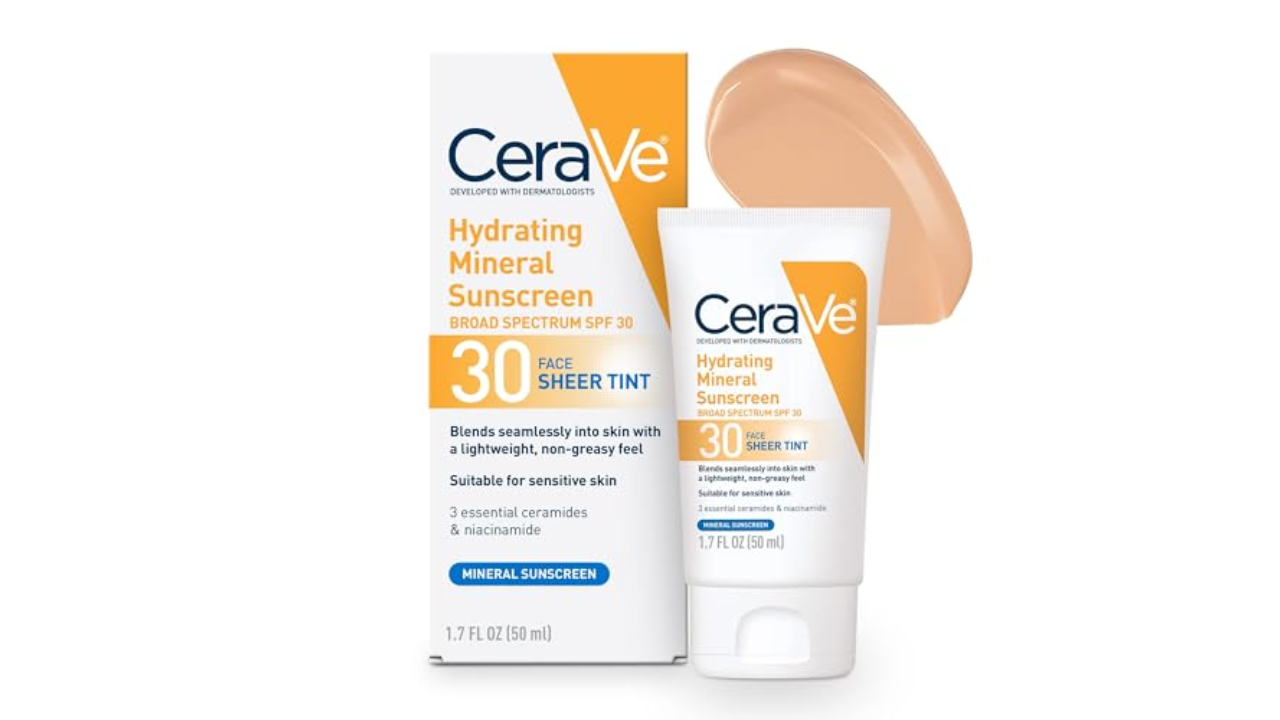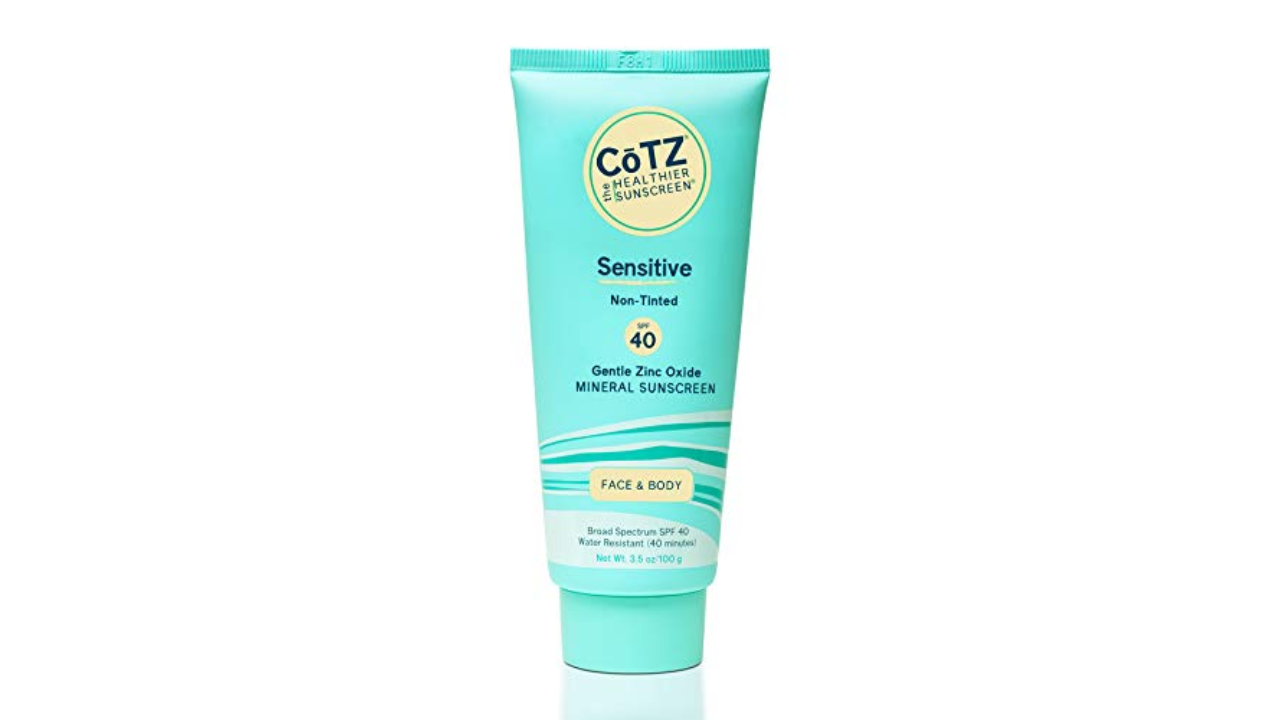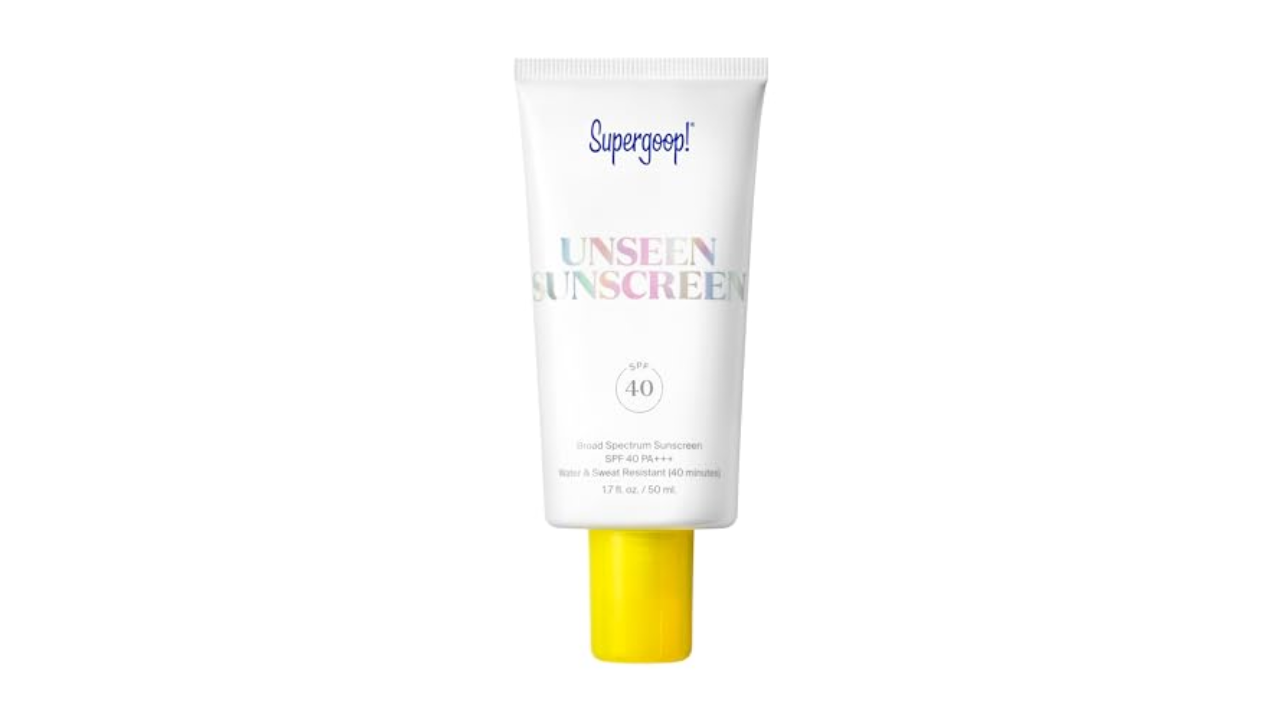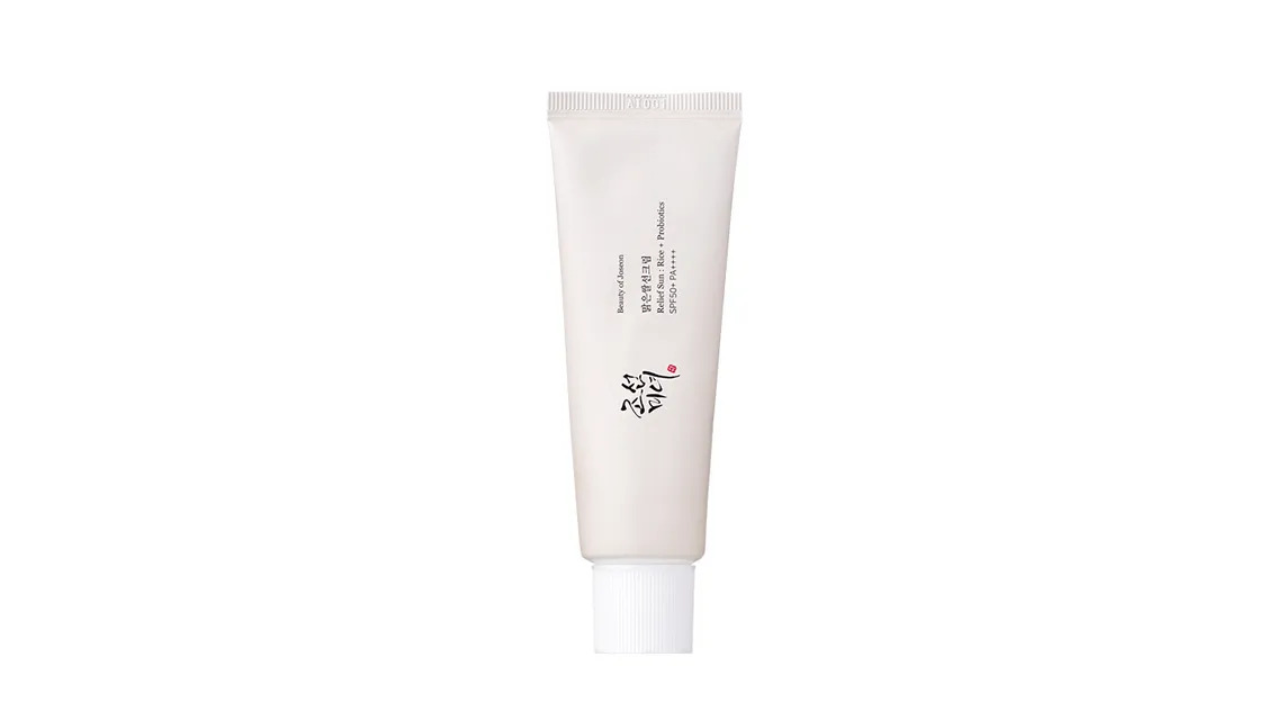Sensitive skin can be a challenge to care for generally, but it can particularly make finding a high-quality, easy to tolerate sunscreen difficult. If your skin is easily irritated (or you suffer from skin conditions like rosacea or eczema), many SPF formulas can be at least pore clogging, if not itchy and seriously uncomfortable. We all know UV rays are damaging and even dangerous, which makes finding the best sunscreen for sensitive skin — one you'll actually use and maybe even enjoy — of critical importance. This is primarily for your health (according to the American Cancer Society, 5.4 million basal and squamous cell skin cancers are diagnosed in the U.S. each year) but most of also to avoid the signs of premature aging.
Quick Overview
See 2 more"Most people think sunscreen is only about blocking harmful UV rays, but it is important to emphasize that hyperpigmentation, wrinkles, photo-damage all contribute to looking weathered and more aged," says Los Angeles dermatologist and facial plastic surgeon Dr. Kay Durairaj. "As skin ages, it also becomes more vulnerable to UV damage, which can both exacerbate signs of aging and increase the risk of skin cancer."
We consulted skin experts and tested dozens of SPF products — here are the best sunscreens for sensitive skin we've found.
Table of contents
Advertisement
Advertisement
Update, Feb. 26, 2025: We checked all product prices and availability and re-tested our top choices. Our number one pick for the best sunscreen for sensitive skin remains unchanged.
The overall best sunscreen for sensitive skin
Active Ingredients: Zinc oxide | SPF: 46 | Size: 1.7 ounces | Water-Resistant: Yes | Reef Safe: No | Cruelty-Free: No
This standout mineral sunscreen with zinc oxide was recommended by most every dermatologist I interviewed. It's exceptionally good for dry, sensitive or mature skin and is packed with ingredients like hyaluronic acid to keep your face looking dewy. Of note: EltaMD is both a mineral and chemical SPF, so the texture feels smooth going on and it is absorbed fast. It's also noncomedogenic and fragrance- and oil-free.
The brand also recently released a new mineral sunscreen we're excited to try. Check out EltaMD UV Skin Recovery Broad Spectrum SPF 50, which we featured on our list of the most-anticipated products of the month.
Other top sunscreens for sensitive skin we recommend for 2025
Active Ingredients: Titanium dioxide, iron oxides | SPF: 50 | Size: 1.7 ounces | Water-Resistant: Yes | Reef Safe: Yes | Cruelty-Free: No
The award-winning La Roche-Posay Anthelios sunscreen is considered among the best in the world. The texture is lightweight, almost watery (like a thin day cream), which soaked into my skin on contact.
Once on, the formula looked natural, with no greasy feel, no stickiness and no glossy sheen. In fact, this is my only complaint about the Anthelios face sunscreens: They're matte, which is not always the best for mature skin. On the plus side, they're fragrance-free, and, even when I went super close to my eyes, the cream didn't sting. All in all, I'd give the application experience a 9/10.
You can read my in-depth review of La Roche-Posay Anthelios sunscreen here.
SPF: 30 | Broad Spectrum: Yes | Water-Resistant: No | Mineral or Chemical: Mineral | Active Ingredients: Zinc oxide 20%
This unscented formula is safe for sensitive skin — it's made with fast-absorbing zinc oxide and is packed with bonus wellness ingredients like vitamin C and green tea to help quell irritation.
Derma-E’s Sun Defense facial sunscreen is 100% fragrance-free, and that vitamin C and green tea we mentioned help fight the signs of aging and help skin to recover after sun exposure. The physical sunscreen’s zinc oxide provides broad-spectrum UVA/UVB sun protection, and it’s oil-free so it won’t clog your pores.
Active Ingredients: Titanium dioxide, zinc oxide | SPF: 30 | Size: 1.7 ounces | Water-Resistant: No | Reef Safe: No | Cruelty-Free: No
The "universal" tint in this tinted SPF 30 sunscreen blends into many skin tones and the mineral-based formula provides broad-spectrum protection against UVA and UVB rays while — thanks to skin-hydrating ceramides and niacinamide — locking in moisture. Keep in mind, it's not water-resistant nor reef safe, so not your best pick at the beach. Still, at $13, it's a quality sunscreen for everyday use.
Active Ingredients: Zinc oxide | SPF: 40 | Size: 3.5 ounces | Water-Resistant: Yes | Reef Safe: Yes | Cruelty-Free: Yes
Cotz was founded in 2002 by reconstructive plastic surgeon Dr. Harry Fallick, who set out to make a gentle, versatile everyday sunscreen his patients would actually use. The result is this water-resistant SPF 40 mineral sunscreen, which not only protects but also soothes sensitive skin. The ultra-silky cream is reef-friendly and free of dyes, fragrances, oils, preservatives, gluten and phthalates.
Active Ingredients: Avobenzone, 3%, homosalate 8%, octisalate 5%, octocrylene 4% | SPF: 40 | Size: 1.7 ounces | Water-Resistant: Yes | Reef Safe: Yes | Cruelty-Free: Yes
If you are looking for a sunscreen that also acts as a makeup primer OR need your sun protection to be completely invisible (i.e., no sheen), this one's for you. It's scent-free and weightless, and provides SPF 40 protection. A "clean" chemical sunscreen, this wildly popular formula is free of oxybenzone and octinoxate. Though anyone can use it, it works particularly well for oily or acne-prone skin.
Supergoop has a range of sunscreens that we’ve tested; each is formulated to be gentle on sensitive skin.
Active Ingredients: dibutyl adipate, propanediol, diethylamino hydroxybenzoyl hexyl benzoate | SPF: 50 | Size: 1.7 ounces | Water-Resistant: No | Reef Safe: No | Cruelty-Free: Yes
Relief Sun offers powerful broad-spectrum SPF 50+ PA++++, is lightweight, ultramoisturizing and absorbs quickly with little to zero white cast. Highly concentrated rice extract, niacinamide and probiotics serve to both soften skin and reduce the appearance of fine lines. This is an "organic" chemical sunscreen, free of irritating chemicals like oxybenzone and octinoxate.
You can read my in-depth review of Beauty of Joseon Relief Sun here.
Factors to consider when choosing sunscreen for sensitive skin
Active ingredients: Opt for mineral sunscreens that contain zinc oxide and/or titanium dioxide. In most cases, look for those without fragrance.
SPF: The American Academy of Dermatology Association (AADA) recommends a minimum SPF of 30. Make sure you’re using broad-spectrum sunscreen to protect your skin from UVA and UVB rays.
Water resistance: No sunscreen is waterproof, but some are water resistant. Water-resistant sunscreen protects for at least 40 — and up to 80 — minutes while you’re in the water, according to the AADA. “This is important when swimming or doing recreational activities that involve sweating, since both water and sweat wash off sunscreen and make it less effective,” explains Elma Baron, a professor in the department of dermatology at the Case Western Reserve School of Medicine.
Reef-safe: Consumers should be somewhat skeptical of the terms "reef-safe" or "reef-friendly" as these categories are not regulated by the FDA. The best way to determine whether your sunscreen is reef-safe is to check the ingredients. The National Park Service says mineral sunscreens containing zinc oxide or titanium oxide are less likely to harm coral reefs.
Cruelty-free: Unfortunately, the FDA also does not regulate the term “cruelty-free." Brands can call a product cruelty-free if the final item hasn't been tested on animals but the ingredients or formulations may have been. However, you can check for PETA’s Beauty Without Bunnies certification on your sunscreen bottle or tube — it indicates the product has not been tested on animals and doesn't contain any animal-derived ingredients.
How we tested
We consulted dermatologists and estheticians who recommended over a dozen sunscreens. We tested these recommendations (and reviewed some with more depth, including La Roche-Posay Anthelios Mineral Sunscreen, Supergoop sunscreens and Beauty of Joseon's Relief Sun). We then based our rankings on efficacy, ingredient quality, texture and value.
FAQs
What's the best kind of sunscreen for sensitive skin?
"For individuals with sensitive skin, mineral sunscreens, also known as physical blockers, are often the most suitable choice," says Durairaj. "These sunscreens contain active mineral ingredients, typically zinc oxide and titanium dioxide, which work by sitting on top of the skin to physically block and reflect harmful UV rays away from the skin. Unlike chemical sunscreens, which absorb UV rays and transform them into heat, mineral sunscreens provide a barrier that is less likely to cause irritation or allergic reactions, making them ideal for sensitive and mature skin types." It's important to note that while mineral sunscreens tend to be more natural, in certain cases (as you'll see in our list below), chemical formulas may work best for your particular skin. Both chemical and mineral sunscreens are considered safe and effective by the American Academy of Dermatology. Those with sensitive skin may also benefit from the use of tinted sunscreens, many of which smooth facial blemishes and even reduce redness.
Advertisement
Advertisement
Experts also recommend evaluating the coverage: "Not all sun protectants guard against both UVA and UVB rays, which is important. Always look for something that is broad spectrum, meaning it covers both types of damaging rays," explains cosmetic dermatologist Dr. Ava Shamban. While broad-spectrum coverage is crucial for anyone — including those with sensitive skin — Shamban emphasizes that a higher SPF number is not always better: "The American Association of Dermatology recommends a minimum of SPF 30 with the reason that a broad-spectrum product will protect against 97% of the UVA / UVB rays. This means higher SPF [50, 70 or 90] products, which are often considerably more expensive, actually offer minuscule amounts of additional protection. Above 50 is ultimately not necessary."
Last, says Shamban, it's important to educate yourself on an SPF product's ingredients: "Certain formulas contain fragrances, essential oils, chemical filters or other preservatives that can aggravate a sensitive or super delicate complexion. Look for fragrance free!"
Experts I spoke with additionally recommended seeking out oil-free sunscreens, and, if you suffer from skin-drying conditions like eczema, those with moisturizing ingredients like hyaluronic acid and ceramides.
If your skin is extra picky, always spot test a new product over a few days on a non-face area, like a wrist, to see how you react.
Is SPF 50 too much for sensitive skin?
SPF stands for sunburn protection factor, meaning how much UVB light the sunscreen can filter out. For example, a sunscreen with SPF 15 filters 93% and SPF 30 filters 97%. No sunscreen can protect you 100%. The AADA recommends using a sunscreen with a minimum of SPF 30 broad spectrum protection.
Is there a hypoallergenic sunscreen?
Sunscreen that’s hypoallergenic, or made for sensitive skin, should contain zinc oxide and/or titanium dioxide, and have no fragrance, para-aminobenzoic acid (PABA), oils, or any chemical sunscreen active ingredients. These ingredients can irritate sensitive skin, per the AADA. Check your sunscreen’s ingredients.
What’s the difference between chemical sunscreen and mineral sunscreen?
A chemical sunscreen doesn’t contain zinc oxide or titanium dioxide, while mineral sunscreens have one or both of these ingredients. The best sunscreen for sensitive skin is mineral sunscreen. They work differently, as Baron explains the “simplest way to think about it is that chemical sunscreens absorb UV,” while, “mineral or physical sunscreens block UV.”
Advertisement
Advertisement
Meet our experts
Dr. Kay Durairaj, Los Angeles dermatologist and facial plastic surgeon
Dr. Ava Shamban, cosmetic dermatologist
Elma Baron, MD, a professor in the department of dermatology at the School of Medicine

